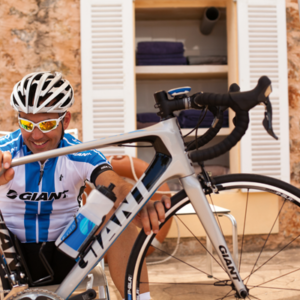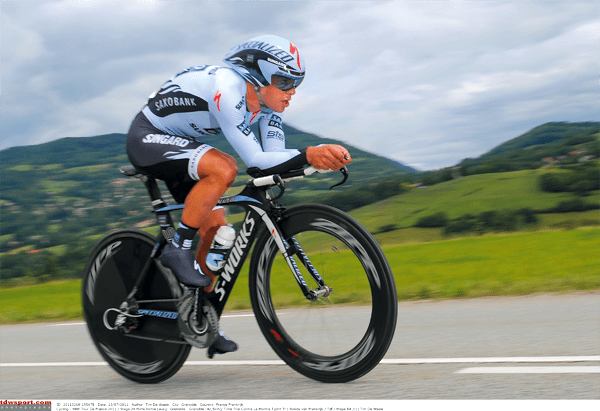 If you wanted to visit a hotbed of Australian cycling, you could do far worse than head to the Principality of Monaco a few kilometres east of Nice on the Mediterranean coast. A large number of cyclists make their home in Monaco, not only for the obvious tax breaks, but also due to the vast amount of fantastic cycling to be had. The city itself is a playground of the super rich, but ride for 20 minutes or so into the hills and you’ll find yourself in a world of switchbacks and quiet country roads.
If you wanted to visit a hotbed of Australian cycling, you could do far worse than head to the Principality of Monaco a few kilometres east of Nice on the Mediterranean coast. A large number of cyclists make their home in Monaco, not only for the obvious tax breaks, but also due to the vast amount of fantastic cycling to be had. The city itself is a playground of the super rich, but ride for 20 minutes or so into the hills and you’ll find yourself in a world of switchbacks and quiet country roads.
One rider who now calls Monaco home is Richie Porte. I visited Richie as he was between pre Tour altitude training camps. The Tassie triathlete turned pro shocked many with his seventh place in the 2010 Giro d’Italia, though perhaps that’s a little unfair given Richie’s steady rise in other races. A third place in the Australian Time Trial Championships behind Michael Rogers and Cameron Meyer was followed by victory in the time trial of the baby Giro. It won’t surprise most to learn then, that Porte’s first love was triathlon. Do those days seem a long time ago now?
Richie Porte: It does seem a long time ago! Nah, I do remember. I was pretty serious about it for around three years. I went ok in non drafting races, but in the drafting stuff I wasn’t that great. I got a bit fed up with it to be honest. I mean it’s a great sport, but even now, I’ve made a much better living out of cycling than I ever would have done in triathlon.
BA: So what was happening? Were you just getting smashed on the run in the drafting races?
RP: Yeah, pretty much. Actually I was. Someone like Craig Walton was incredible in non drafting races. He could win anything, but when the drafting races came in it all changed and he couldn’t win a thing. And I realised that I wasn’t as good as he was, so if he was having trouble then it was time to get out.
BA: You were specialising at the Olympic distance?
RP: I was. I was young and that was the way I wanted to go. But now one of my best friends, a guy called Joe Gambles, just made the podium at the Worlds in the 90.3 and I think that’s the way it’s going. That’s the most prestigious. At the time I wasn’t really interested in racing at the Olympics, I was trying to get a professional licence. But coming from Tasmania doesn’t really help with that sort of thing. You really need to be up on the Gold Coast or somewhere like that.

BA: How did you make the switch then?
RP: Well, Praties was a Tassie team at the time and I used to train with bike riders all the time anyway. And I did a couple of training rides with a guy called Tim Walker and Josh Wilson whose dad in my opinion, is one of the best pros to come out of Australia, just no one knows about him, and they passed my name forward to Andrew Christian-Johnson. Then the next thing I knew I had a bike given to me and I was off to the Canberra Tour and I got my arse absolutely kicked. (Laughs) It was a difficult transition because sure, I could do a good time trial, but on the race, what’s the name of that last climb? The Three Sisters? Out Uriarra and Cotter way. I’d get to there with the bunch and suddenly have six minutes put into me!
At that time Praties was one of several Australian teams racing on the Continental circuit and Porte raced with them in 2007 and early 2008 before heading to the Monsummanese Grassi Mapei amateur Italian team, whose director was none other than Andrea Tafi. This was a period of intense learning for Richie. The Italian amateur scene is a tough one, working on the school of hard knocks philosophy and talking to Richie you get the impression that having Tafi around as a mentor is something he is grateful for.
I used the term school of hard knocks quite deliberately. Not many people know, or perhaps don’t remember, but while racing for that team Richie suffered a potentially career threatening injury. I’d spoken to him about it a couple of years earlier and he was a bit reticent, not wanting to go too much into details. When I bring it up again in Monaco, he’s a bit more forthcoming, although it’s clear there are still scars.
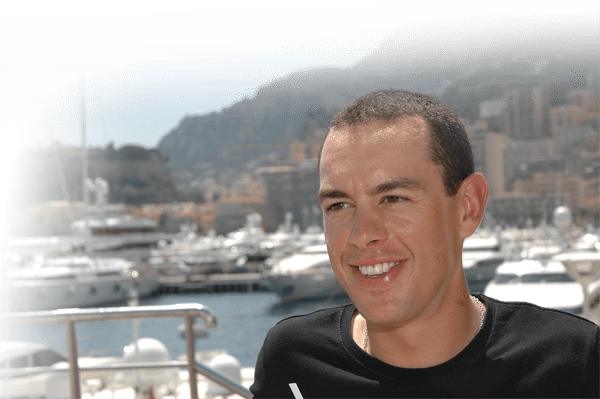
RP: Mmmm…(long pause). Mmm…I got cleaned up in a race called Palma-La Spezia. We were riding through a tunnel and I got cleaned up from behind by a team car. It wasn’t a nice time. I was in hospital for a fair while. And I mean, well, I couldn’t really be bothered riding after that. I was laid up for six weeks and when I got out I was ready to chuck it in. But luckily I was in a good team. Andrea Tafi was in charge and certainly they looked after me quite well and I came back and won a race in what they call the ‘regions’. It was a big, important race and from then Tafi took me under his wing a fair bit.
BA: But you were still racing a little hesitantly for a while. I remember in that wet Herald Sun Tour that Stuey O’Grady won you were taking it carefully on some of the descents.
RP: Yeah, I was. A crash like that takes a lot of getting over. To be honest, there was one time I came back and did the Tour of Tassie and I was just gone both mentally and physically. I told Andrew Christian-Johnson and Steve Price “There’s my bike. My mum’s going to come and pick me up afterwards, I’m out of cycling.” And that day I went out and won the stage by about a minute forty-five! And out of my wins, that was one of the nicest. To be able to ride in the leader’s jersey through your home town with Mum and Dad watching, that was great. They don’t get to see me race much but they were there to see me win up Poatina which is one of the hardest climbs in Northern Tassie.
Perhaps the most important step however was still to come. It’s funny how you can’t see a chain of events until afterwards, in this case, Richie’s victory straight after his return from a crash obviously impressed Tafi, convincing him that Richie’s talent was obviously worth nurturing. Similarly, his good riding at the Nationals earned him a wild card in the UniSA team at the 2008 Tour Down Under. As it is that team’s policy to have a different rider in the break each day, this indirectly placed him under the noses of Brad McGee and Stuart O’Grady. So that when Andrea Tafi notified Bjarnne Riis that he had a rider worth looking at Riis was able to reference the two Aussies about him.
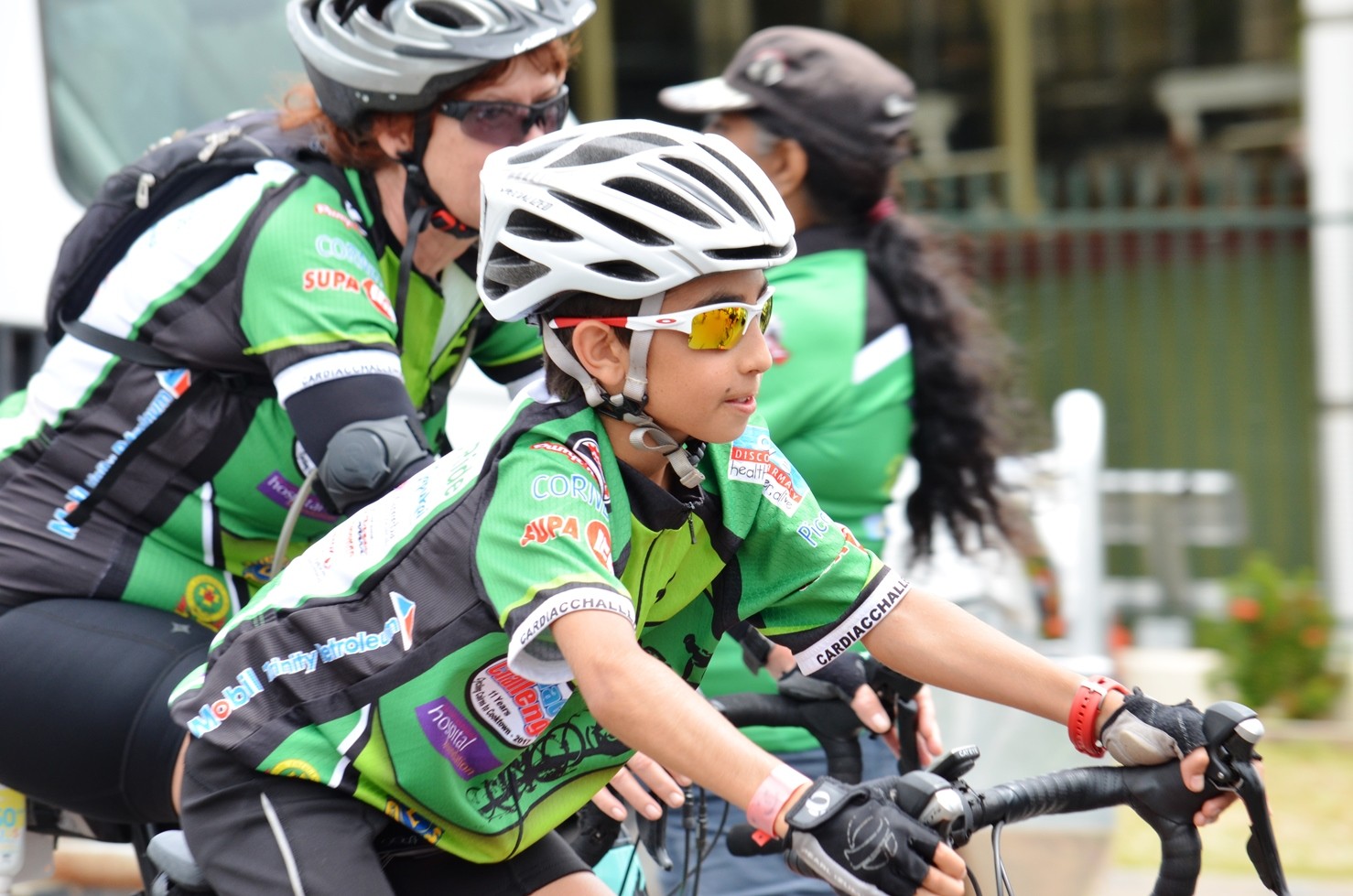
RP: Yeah, well first it was Tafi who sent Bjarnne Riis a message, but there was also a Tassie connection, a guy called Leigh Brian who is a trainer here in Monaco. The next thing I found myself talking with Brad McGee and Stuey here and then a meeting with Bjarnne, on his holiday. He said he knew I could ride but things were a bit tight with the budget. But then in the middle of the interview he said he thought he might take me on and by the end he said “That’s enough talk about the bike, I’ll take you on.” And that was just massive! Joining the team who at that time were the best team going around was amazing.
BA: What was it like turning up to training camp for the first time and you’ve got Stuey, Fabien and a Cancellara, all those guys there and here you are fresh?
RP: Mmm…yeah. Well, I had to leave Tassie in December so I only had four weeks there before coming straight back and I met Jens Voigt and a couple of the others on the flight across to Mallorca and it was fine. It was a good team, the Schlecks are great guys. Fabien was probably the hardest to get to know. But what really broke the ice so to speak was an exercise we had to do that was underwater swimming and I kicked all their arses! So, then Bjarnne and Fabien were on my swim team so they liked that and they gave me the nickname of ‘The Fish’.
BA: Do they still call you that?
RP: McGee and those guys do yeah.
BA: Brad likes his nicknames.
RP: He does, he does. (Laughing) But you know, it was such a big thing then, to turn up and ride with those guys, but like anything, it soon becomes normal.
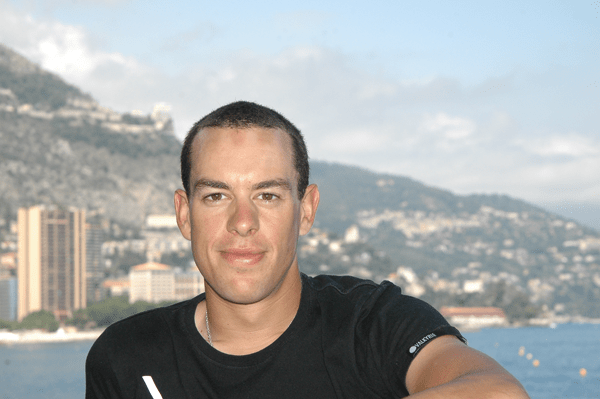
It didn’t take Richie long to repay the faith placed in him. Despite crashing early in the prologue, he bounced back by winning the time trial at the Tour of Romandie. Was this particular win an unexpected one?
RP: Yeah, I was and I kind of wasn’t. It’s hard to explain. I mean, I think there were a few factors that helped. I had a crash in the prologue so I was back in mid field by the time the TT came around and I may have got a favourable wind. But I still rode an solid time trial. Sometimes it clicks, and I had Brad behind me guiding me through and it was a great day.
BA: When you’re out there are you getting useful time checks?
RP: I was, but being midfield alters it a little. There were some good time triallers who had gone, guys like Grabsch so I knew I was up on them. But by the finish I still had plenty to come after me, such as Valverde, Rogers and Gustav Larsson as well. Then to have to sit on the bus with the other guys and watch the rest of the riders come in on the TV, it was horrible, because they were all faster than me for the first half. But in the end I won by 29 seconds.
BA: The Giro also kind of came out of nowhere as well?
RP: Yes and no. I mean I’d been pretty consistent through the Giro up to that point, I think I came sixth in the prologue and I was in good form. Certainly you need a bit of luck to be in the break that sticks. But also, what the hell were they thinking to let 60 odd riders go up the road like that? That was just unbelievably stupid. It was a hard stage, 262km, and horrible, horrible weather.

BA: It happens every now and then though, doesn’t it? Was it in the 2002 Tour de France when three quarters of the field missed the time cut on an early stage?
RP: That’s right, they had to bend the rules or they would have had just 20 riders the next day.
BA: So now you’ve achieved these things, how much pressure do you put on yourself both at the time and now?
RP: I think it was OK after about the first hour and a half and everything had calmed down. What you don’t see is that our team had sat on the front, trying to work out who was going in the break. We didn’t have the strongest team there, but we had guys like Nikki Sorensen who I think is one of the best going around. And he rode like 10 men. But the stresses aren’t always the ones you think they’re going to be. It was nice in the evening after you’d finished but in the morning on the bus it was horrible, knowing that as soon as you got on the bike every man and his dog would want to smash you to pieces. And like, the day I lost the jersey, I did it with a whole heap of cameras in my face. That was harder to deal with. But on a personal level, what saved my Giro was that I still finished high on GC and I won the white jersey.
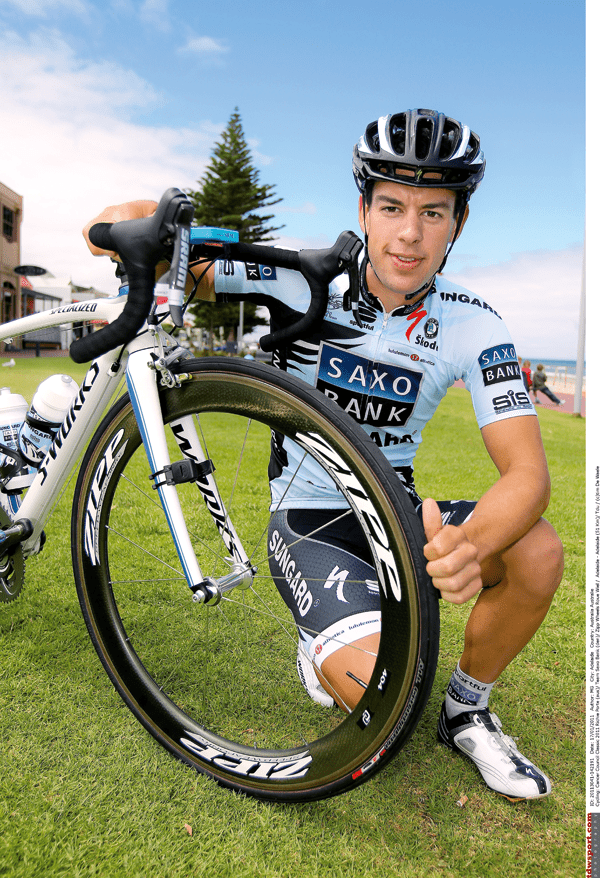
But the other thing is that while wearing the pink jersey I got gastro and I went from being on cloud nine to not even wanting to start the next day. But when you’re on a good team, you can get through those things. We had good doctors and I got to the start but on a couple of occasions I was getting pushed up the hills. Personally I would have liked to hold onto it a little bit longer but it just wasn’t going to happen, not with having gastro and being weak.
But then I rode the Giro this year in a different role, a supporting role for Alberto Contador and you see other guys in the pink and you realise how big a deal it was.
BA: How did it feel that first time on the bus when they said “OK guys, today we must ride for Richie”?
RP: It was strange. It’s like when you turn up at camp and there’s all those big names. And then four months later they’re riding for you. But the payback is that this year we go to races and they can sort of say or do what they want to do but for me it’s “Richie, you’re riding for GC.” Even when I’m not ready to ride for a particular GC, if I haven’t trained for it. So this year’s Giro was a blessing in a way, with Alberto joining the team.
BA: And I guess there’s added pressure from people at home now as well?
RP: Yeah, you see stuff written about you that sometimes isn’t nice, but I guess its all part of it. Sometimes people judge you as a person depending on how you ride your bike, and that’s probably one of the hardest things. And you have to make a mental adjustment which takes a long time. I mean, you go from small town Tassie to an apartment in Monaco. It’s a shock. But also, cycling is a hard sport. It’s hard and it can be scary and you have to be able to deal with it all.
At the end of 2010 there was a lot of uncertainty with regards to Saxo-Bank. Halfway through the year a sponsor was still yet to be found. To add to their troubles, the Schlecks were known to be interested in a Luxembourg outfit and in the end took several riders with them, including O’Grady, Voigt and Cancellara. How did this affect someone who had been successful but now found himself in a different position?
RP: There was a definite sense of breaking up within the team. I mean we lost some good guys and we went from probably the most powerful team last year, having a huge Classics campaign and strong in the grand tours, to the underdogs. But that’s Bjarnne’s thing. I mean he re-built CSC many times and you look at it now, well you miss guys like Stuey of course, but then we’ve still got some awesome results so far this year, like Nick at Flanders for example. But yes, it was strange to turn up at the early training camp and not have the Schlecks and so on. The thing is that the new guys like Alberto and the others, well they’ve turned out OK and they fit into the squad really well. In some ways it’s almost a happier team this year because last year there was that uncertainty you know, who’s leaving, who’s staying and losing a lot of staff as well. But this year, that part of things has all gone and everyone wants to be here, so in that sense, it’s much happier and much more settled.
Bjarnne Riis certainly did come up trumps, resigning Saxo as a sponsor and then replacing the departing riders with one Alberto Contador. A lot has been written about Alberto’s clenbuterol saga and I won’t go over it all again here. But what I am curious about is the dynamics of racing with someone who has that hanging over their head, particularly if they’re new to the team. Someone like Ricardo Ricco doesn’t appear welcome anywhere, yet David Millar came back and has won a lot of respect. Brad McGee once told me the difference is whether someone admits they’ve done wrong or not, and Contador certainly denies his guilt. I would like to be a fly on the wall during the first day of the training camp. Is it awkward, or do people just get on with their own training?
RP: It is a bit like that and of course you’re in awe of him, but really, he’s such a normal guy. He’s a nicer guy than I am. He’s no stress at all, he’s good to the staff and he really looks after us, ‘his boys’ better than anyone I’ve ever ridden for.
BA: Mmmm…but what I mean is, having a doping cloud over his head and the uncertainty of whether he’ll even be racing, does that cause awkwardness? You know, avoiding his eyes and not knowing what to say or an ‘elephant in the room’ to quote a phrase?
RP: By the time I came back to Europe it was pretty clear that he was going to ride so it was full gas as far as that was concerned. As for the other well yeah…it’s a little bit strange, but it’s out of our control. But yeah, there is a little bit of that feeling. I’ve always bagged people who dope and now, well…but Alberto, well if anyone had an opinion on him, I say to spend a few days with him and you’ll see there isn’t a nicer bloke.
So where to now for Richie. At the time of writing he had been called to ride the Tour de France, no doubt in support, but also to learn as much as he can about the biggest race in the world. However he is out of contract at the end of the season. Will he stay with Riis, or will he look for greener fields? No doubt many would like to see him at GreenEDGE and while Richie openly says how much he admires and respects Shayne Bannan, he isn’t exactly on the AIS ‘hotlist’ having taken a different route.
RP: You know last year there was some talk about me trying to break my contract. I had a lot of offers from other teams. You know, you have a good season and the money you get offered is staggering. And people can say you have a contract, but well, it’s hard to ignore. Personally I would like to be loyal, but there’s so much to weigh up. Bjarnne was the one that really gave me the opportunity so, at the moment I’m happy in Saxo-Bank but I’ll have to really discuss it with my manager and also my partner, because it’s not like the offers I’m getting are from second rate teams. But I also like working with Brad McGee and he would probably be the biggest reason for me to stay at Saxo-Bank. He’s an incredible intellect and also a great guy. But whatever happens I’ll always look back on what Brad has done. He has done so much to make me the rider I am. As I say, it’s a lot to weigh up.
BA: How many people have asked whether you’re going to GreenEDGE?
RP: Oh, everyone. I think GreenEDGE is awesome for Australian cycling and I really hope they get a full license. I think that Shayne Bannan and Neil Stevens are definitely the right people to take Australian cycling to the next level and there’s a good feeling about. They’re certainly looking like a pretty professional outfit.
BA: You don’t have much of a relationship with the people at the AIS do you? Do you think they might be better putting resources towards finding the first Australian Tour de France winner and therefore benefiting the rest of the cycling program that way?
RP: It’s difficult to say. I guess you’re not going to find another Cadel, but I think on the whole they’re doing the right thing, I mean look at Matt Goss. He’s an out and out champion. I came through the Italian amateur system which is really, really hard racing. And I’m not sure that in the end, it mightn’t be a better way, especially doing it all on your own, not knowing the language and so on. If I look back on it now, well it wasn’t all happy times, but it does toughen you up, which makes the transition to the pro ranks easier, for want of a better word. If I had come to cycling earlier then I think I would have liked to come through that system. But you know, even the way I came through was easier than the guys who came through a generation before. I guess everyone has a sob story!
Still there’s guys who have come through that AIS system who are doing really well, so obviously it really suits some people, especially if you come to the top level as a teenager.
Whichever way he goes, it seems certain that the Tasmanian country boy will stay in Monaco. Walking through the streets together with him and his partner I can see that he is as much at home here as he might be in Launceston. He has his favourite cafes and Indian restaurant. The proprietor of the cafe where we stop for coffee and foccacia obviously is familiar, the Italian connection perhaps giving them a common bond. I wonder if it was like that in the beginning?
RP: Monaco is home now. Under the facade it’s a beautiful place. I enjoy it even though at times it’s very artificial. But I lived in Toscana and I enjoyed that too, but this is home now. I go back to Australia and I get homesick for this place. It’s got fantastic training up in the hills even though you have to fight the traffic to get out there. I think it’s the best out of all the cycling hot spots. When I first came here it was a bit of a culture shock. I even had a white Christmas in the first winter and it does blow you away the first Ferrari and Lamborghini you see but you soon get over that. My girlfriend is with me, although she hasn’t got many other girls to train with unfortunately. The coffee is good! Also you turn up to the bunch and there’s a few names, Gossy, Baden Cooke, Renshaw, Gilbert, Vinokourov, Stuey, Hushovd, Boonen, Dave Tanner who’s going well, Wes Sulzberger and a few more. It’s quite a bunch and we kind of look after each other. Yeah, I guess it’s home.

